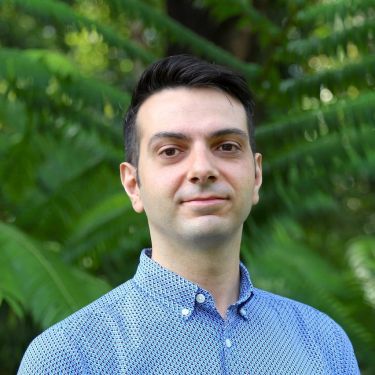Rodrigo Ordóñez works for IWMI as Global Communications Lead for Water Systems. As the organization’s head of communications and knowledge management, he leads a team delivering innovative communications, publishing, digital libraries and web content. He also leads strategy development and implementation.
Ordóñez has been part of CGIAR since 2017. Before joining IWMI, he worked for the International Maize and Wheat Institute (CIMMYT) in Mexico and for the Center for International Forestry Research (CIFOR) in Indonesia.
Prior to that, he managed communications for humanitarian organizations (American Red Cross, Save the Children, CARE, Mercy Corps) in emergencies like Darfur, the Japan tsunami and the Sahel food crisis. Working in liaison roles, he coordinated with other departments and organizations for joint advocacy and policy initiatives. He has extensive experience organizing and leading field visits and special events for celebrities, corporate partners, donors, media, national committees and VIPs. While working in emergencies, he facilitated interviews, site visits, and access to sources and data for international media such as Al Jazeera, AFP, AP, BBC, CNN, DPA, Die Zeit, The Guardian, PBS, RFI, RTVE, SBS, the Sydney Morning Herald and TV5. Besides acting as spokesperson, he has trained and coached others to deliver concise messages during interviews.
He has also done communications consulting work for the Association of Southeast Asian Nations (ASEAN), Conservation International, New York University and the Tropical Forest Alliance. He is a member of the International Environmental Communication Association (IECA).
His career also includes experience in print, broadcast and online media. At the start of his journalism career, he worked as a reporter in radio stations and news agencies. He later worked for award-winning war photographer James Nachtwey, and ran his own production company. His photography and video clients included the Financial Times, History channel, KONE, Oxfam, Showtime channel, UNICEF, Vice magazine and the World Economic Forum.
Ordóñez considers himself a ‘cultural amphibian’ and truly enjoys immersing in and connecting cultures. He has lived and worked/studied in Europe (France, UK, Spain), the Americas (Haiti, Mexico, USA), Africa (Chad, Côte d’Ivoire, Kenya, Niger, South Sudan, Sudan) and Asia (Indonesia, Japan, Kyrgyzstan). He is trilingual in English, French and Spanish, can speak Haitian Creole and Indonesian/Malay, and can survive in a handful of other languages.
He is particularly interested in climate change and sustainability, human-centered design, innovation and a better use of information technologies. At work, he enjoys leading teams, creating and optimizing systems, training scientists to be better communicators and developing strategies.
He holds a bachelor’s degree in journalism (Bilbao, Spain & Worcester, UK) and a master’s degree in international relations from The Fletcher School (Tufts University & Harvard University, USA).


